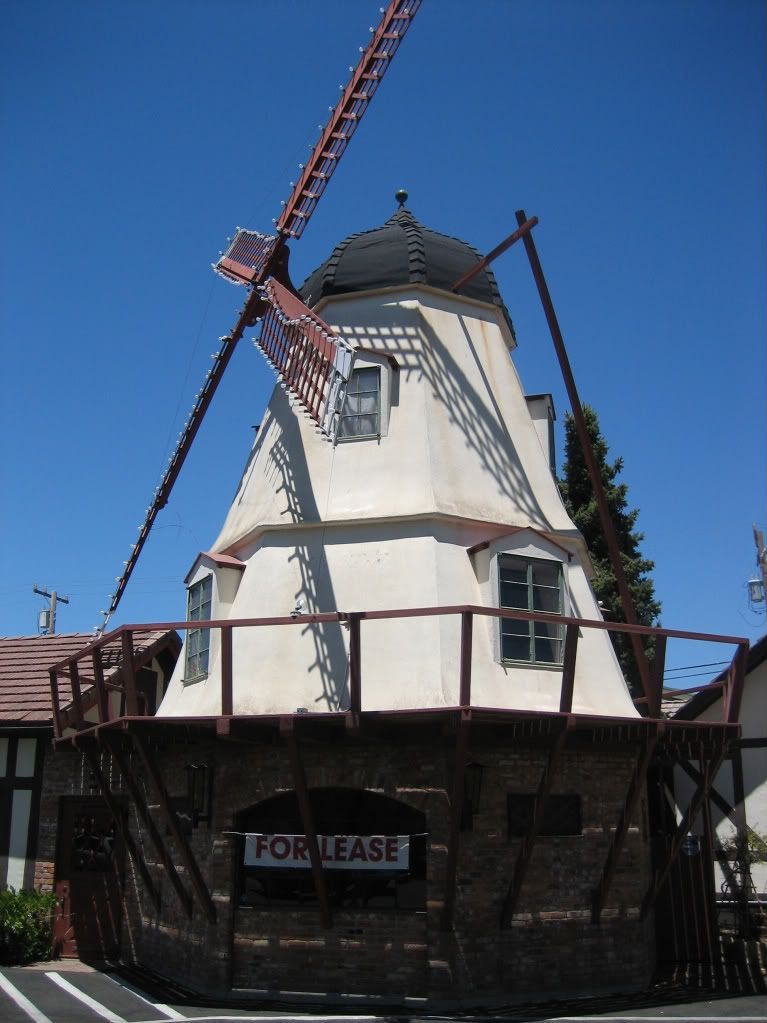Herb Alpert
Rene Descartes
Franz Joseph Haydn
Gabe Kaplan
Vanessa Del Rio
Christopher Walken
Angus Young
Tuesday, March 31, 2009
Monday, March 30, 2009
Vanina Marsot on FOREIGN TONGUE
To order your copy of Vanina Marsot's new novel, click here: Foreign Tongue: A Novel of Life and Love in Paris
Sunday, March 29, 2009
Saturday, March 28, 2009
Friday, March 27, 2009
Thursday, March 26, 2009
Birthdays Worth Remembering
Alan Arkin
James Caan
Erica Jong
Leonard Nimoy
Teddy Pendergrass
Diana Ross
Tennessee Williams
James Caan
Erica Jong
Leonard Nimoy
Teddy Pendergrass
Diana Ross
Tennessee Williams
Wednesday, March 25, 2009
Tuesday, March 24, 2009
Monday, March 23, 2009
Sunday, March 22, 2009
Saturday, March 21, 2009
Friday, March 20, 2009
Thursday, March 19, 2009
Wednesday, March 18, 2009
Altovise Davis 1943 - 2009

The widow of Sammy Davis, Jr., Altovise is credited with appearances in six motion pictures. Three of them are Welcome To Arrow Beach, Kingdom Of the Spiders, and Can't Stop the Music.
Rest In Peace.
Tuesday, March 17, 2009
Monday, March 16, 2009
Birthdays Worth Remembering
Bernardo Bertolucci
Erik Estrada
Flavor Flav
Jerry Lewis
James Madison
Pat Nixon
Henny Youngman
Erik Estrada
Flavor Flav
Jerry Lewis
James Madison
Pat Nixon
Henny Youngman
Sunday, March 15, 2009
Saturday, March 14, 2009
Friday, March 13, 2009
Victoria Doyle on WVLT-FM Saturday!

In the Philadelphia/NJ area, tune in to WVLT 92.1 FM to hear Victoria Doyle on The Steve Kurtz Show tomorrow, Saturday March 14, between 1 and 2 pm EST.
To listen online, visit http://www.wvlt.com/index1.html and click on Listen Live.
Thursday, March 12, 2009
Wednesday, March 11, 2009
Trust


Gotta love the Foreign Languages Press of Peking...especially for $.99 at Goodwill! If you're at Goodwill and you have $.99 to spare and you find a copy of V.I. Lenin's Imperialism, The Highest Stage of Capitalism, then by all means get it--it's totally worth every penny!
This handsome little book is just chock-a-block with gems of a kind that make me think of music (well, the music 'industry' anyway.) Sure it's about banks and what appears to be the capitalist's inborn inability to share, but by now you should know that words only sometimes mean something and as such you should have no problem substituting words like "Large Banks" with "Lincoln Center" and "upper stratum of the labour aristocracy" with the Jazz collective or "featured artist" of your choosing. Please feel free to do so, and most importantly, have fun!
Here are some highlights:
What is the economic basis of this world-historic phenomenon? Precisely the parasitism and decay of capitalism which are characteristic of its highest historical stage of development, i.e., imperialism. As is proved in this pamphlet, capitalism has now singled out a handful (less than one-tenth of the inhabitants of the globe; less than one-fifth at a most "generous" and liberal calculation) of exceptionally rich and powerful states which plunder the whole world simply by "clipping coupons." Capital exports yield an income of eight to ten billion francs per annum, at prewar prices and according to prewar bourgeois statistics. Now, of course, they yield much more.
Obviously, out of such enormous superprofits (since they are obtained over and above the profits which capitalists squeeze out of the workers of their "own" country) it is possible to bribe the labour leaders and the upper stratum of the labour aristocracy. And the capitalists of the "advanced" countries are bribing them; they bribe them in a thousand different ways, direct and indirect, overt and covert.
This stratum of bourgeoisified workers, or the "labor aristocracy," who are quite philistine in their mode of life, in the size of their earnings and in their entire outlook, is the principle prop of the Second International, and, in our days, the principal social (not military) prop of the bourgeoisie. for they are the real agents of the bourgeoisie in the working-class movement, the labour lieutenants of the capitalist class, real channels of reformism and chauvinism. In the civil war between the proletariat and the bourgeoisie they inevitably, and in no small numbers, take the side of the bourgeoisie...
(p.9-10)[Is there a "labor aristocracy" in music? How about in our beloved improvised music? How about superprofits? If you are an improvising musician making zero dollars and zero cents, how much money would an improvising "labor aristocrat" have to make before it qualified as a "super profit?"]
and
The real beginning of modern monopoly goes back at the earliest, to the 'sixties. The first important period of development of monopoly commenced with the international industrial depression of the 'seventies' and lasted until the beginning of the 'nineties." "If we examine the question on a European scale, we will find that the development of free competition reached its apex in the 'sixties and 'seventies."
[hmm, anything else reach its apex in the (nineteen) 'sixties and 'seventies?]
Then it was that England completed the construction of its old-style capitalist organization. In Germany, this organization had entered into a fierce struggle with handicraft and domestic industry, and had begun to create for itself its own forms of existence."
"The great revolution commenced with the crash of 1873, or rather, the depression which followed it and which, with hardly discernible interruptions in the early 'eighties, and the unusually violent, but short-lived boom about 1889, marks twenty-two years of European economic history." "during the short boom of 1889-90, the system of cartels was widely resorted to in order to take advantage of the favorable business conditions. An ill-considered policy drove prices up still more rapidly and still higher than would have been the case if there were no cartels, and nearly all these cartels perished ingloriously in the smash. Another five-year period of bad trade and low prices followed, but a new spirit reigned in industry; the depression was no longer regarded as something to be taken for granted: it was regarded as nothing more than a pause before another boom.
(p.19)["oh just give it a little while, the economy will recover and everything will be back to 'normal'"]
"The cartel movement entered its second epoch: instead of being a transitory phenomenon, the cartels became one of the foundations of economic life. They are winning one field of industry after another, primarily, the raw materials industry. At the beginning of the 'nineties the cartel system had already acquired--in the organization of the coke syndicate on the model of which the coal syndicate was later formed--a cartel technique which could hardly be improved. For the first time the great boom at the close of the nineteenth century and the crisis of 1900-03 occurred entirely--in the mining and iron industries at least--under the aegis of the cartels. And while at that time it appeard to be something novel, now the general public take it for granted that large spheres of economic life have been, as a general rule, removed form the realm of free competition." (***)
(p. 19-20)"so you wanna be a rock and roll star?"
and
Cartels come to an agreement on the conditions of sale, terms of payment, etc. They divide the markets among themselves. They fix the quantity of goods to be produced. They fix prices. They divide the profits among the various enterprises, etc.
(p.20)and
The report of the American Government Commission on Trusts states: "Their superiority over competitors is due to the magnitude of its enterprises and their excellent technical equipment. Since its inception, the Tobacco Trust has devoted all its efforts to the substitution of mechanical for manual labor on an extensive scale. With this end in view it bought up all patents that had anything to do with the manufacture of tobacco and spent enormous sums for this purpose...
(p.22)and
Competition becomes transformed into monopoly. The result is immense progress in the socialization of production...This is something quite different from the old free competition between manufacturers, scattered and out of touch with one another, and producing for an unknown market. Concentration has reached the point at which it is possible to make an approximate estimate of all sources of raw materials (for example, the iron ore deposition) of a country and even, as we shall see, of several countries, or of the whole world. Not only are such estimates made, but these sources are captured by gigantic monopolist combines. An approximate estimate of the capacity of markets is also made, and the combines "divide" them up amongst themselvs by agreement. Skilled labor is monopolized, the best engineers are engaged; the means of transport are captured: railways in America, shipping companies in Europe and America. Capitalism in its imperialist stage leads right up to the most comprehensive socialization of production; it, so to speak, drags the capitalists, against their will and consciousness, inot some sort of a new social order, a transitional one from complete free competition to complete socialization.
(p.24)[Was there ever a time when musicians were "scattered and out of touch with one another, and producing for an unknown market"--you know, just making music for the joy (and fun!) of making music? If so, was that music any "good?" Has myspace/myface/facebook/blogger/wordpress/lookatmelookatme.com helped music?]
Production becomes social , but appropriation remains private. The social means of production remains the private property of a few. The general framework of formally recognized free competition remains, but the yoke of a few monopolists on the rest of the population becomes a hundred times heavier, more burdensome and intolerable.
(p.25)and
The German economist, Kestner, has written a book especially devoted to "the struggle between the cartels and outsiders," i.e., the capitalists outside the cartels. He entitled his work Compulsory Organization, although, in order to present capitalism in its true light, he should, of course, have written about compulsory submission to monopolist combines. It is instructive to glance at least at the list of the methods the monopolist combines resort to in the present day, the latest, the civilized struggle for "organization":
- Stopping supplies of raw materials (..."one of the most important methods of compelling adherence to the cartel");
- Stopping the supply of labour by means of "alliances" (i.e., of agreements between the capitalists and the trade unions by which the later permit their members to work only in cartelized enterprises);
- Stopping deliveries;
- Closing of trade outlets;
- Agreements with the buyers, by which the latter undertake to trade only with the cartels;
- Systematic price cutting (to ruin "outside" firms, i.e., those which refuse to submit to the monopolists. Millions are spent in order to sell goods for a certain time below their cost price; there were instances when the price of benzine was thus reduced from 40 to 22 marks, i.e., almost by half!);
- Stopping credits;
- Boycott.
Here we no longer have competition between small and large, technically developed and backward enterprises. We see here the monopolists throttling those which do not submit to them, to their yoke, to their dictation.
(p.25-26)and
"...Other banks will follow this same path and in time the three hundred men, who today govern Germany economically, will gradually be reduced to fifty, twenty-five or still fewer. It cannot be expected that this latest move towards concentration will be confined to banking. The close relations that exist between individual banks naturally lead to the bringing together of the industrial syndicates which these banks favour...One fine morning we shall wake up in surprise to see nothing but trusts before our eyes, and to find ourselves faced with the necessity of substituting state monopolies for private monopolies. However, we have nothing to reproach ourselves with, except for having allowed things to follow their own course, slightly accelerated by the manipulation of stocks." (*)
This is an example of the impotence of bourgeois journalism which differs from bourgeois science only in that the latter is less sincere and strives to obscure the essence of the matter, to conceal the wood by trees. To be "surprized" at the results of concentration, to "reproach" the government of capitalist Germany or capitalist "society" ("ourselves"), to fear that the introduction of stocks and shares might "accelerate" concentration in the same way as the German "cartel" specialist Tschierschky fears the American trusts and "prefers" the German cartels on the grounds that they "may not, like the trusts, excessively accelerate technical and economic progress"--is not this impotence?
(p.38)and
Quite often industrial and commercial circles complain of the "terrorism" of the banks. And it is not surprising that such complaints are heard, for the big banks "command," as will be seen from the following example. On November 19, 1901, one of the big, so called Berlin "D" banks (the names of the four biggest banks begin with the letter D) wrote to the Board of Directors of the German Central Northwest Cement Syndicate in the following terms:
"As we learn from the notice you published in a certain newspaper of the 18th inst., we must reckon with the possibility that the next general meeting of your syndicate, to be held on the 30th of this month, may decide on measures which are likely to effect changes in your undertaking which are unacceptable to us. We deeply regret that, for these reasons, we are obliged to henceforth to withdraw the credit which had been hitherto allowed you...But if the said next general meeting does not decide upon measures which are unacceptable to us, and if we receive suitable guarantees on this matter for the future, we shall be quite willing to open negotiations with you on the grant of a new credit" (**)
(p.49)and
and
and
and
and
and...
(*) A. Lansburgh, "Die Bank mit den 300 Millionen" in Die Bank, 1914, 1, p. 426
(**) Dr. Oscar Stillich, Geld- und Bankwesen, Berlin, 1907, p. 148
(***) Th. Vogelstein, Die finanzielle Organisation der kapitalistischen Industrie und die Monopolbildungen (Financial Organization of the Capitalist Industry and the Formation of Monopolies--Tr.) in Grundriss der Solialokonomik (Outline of Social Economics-tr.), VI Abt., Tubingen, 1914. Cf., also the same author: Organisationsformen der Eisenincustrie und Textilindustrie in England und Amerika (The Organizational Forms of the Iron and Textile Industry of England and America--Tr.), Bd. I., Lpz., 1910
+ + +
Anyone out there in "free jazz" blog world ever read all 8420 pages of Das Kapital? Just when I thought I couldn't make this blog any more fun...What if "we" went through Kapital page by page, connecting it to our beloved music and the scene which "we" have created for it? Oh the page views, oh the advertising revenue from the Google ads!
Mmmmmm Google ads....
copyright © 2009 Stanley J. Zappa
Tuesday, March 10, 2009
Monday, March 9, 2009
Sunday, March 8, 2009
Saturday, March 7, 2009
Friday, March 6, 2009
All New, All Newstastic!
Plato Jesus returns after more tireless digging through the wastebaskets of the world's newsrooms to provide this latest cache of entries for his "That's Newstastic!" series.
Click on the first entry below, then use the Next > link at the bottom of the page to read them all. Or just click through to each entry individually from here. You're sure to find your eyes pooling up with tears of laughter! Well, tears of something:
You are being lied to about pirates
Dirty sexy money
'Smell map' tracks the world's odours
No snickering: That road sign means something else
Emperor penguins face extinction
U study: 43 percent of active-duty military admit binge drinking
Master list of border tunnels, as of January 31, 2008
US: From militant to military
Click on the first entry below, then use the Next > link at the bottom of the page to read them all. Or just click through to each entry individually from here. You're sure to find your eyes pooling up with tears of laughter! Well, tears of something:
You are being lied to about pirates
Dirty sexy money
'Smell map' tracks the world's odours
No snickering: That road sign means something else
Emperor penguins face extinction
U study: 43 percent of active-duty military admit binge drinking
Master list of border tunnels, as of January 31, 2008
US: From militant to military
Thursday, March 5, 2009
Wednesday, March 4, 2009
Tuesday, March 3, 2009
Beatnik Birthday
2009 marks the 52nd anniversary of the release of Jack Kerouac's On the Road.
I was 15 years old when I first read On the Road. It was a lightning bolt, if not a divining rod. Kerouac was the first writer that made me aware of sentence structure, narrative technique and word usage. Some people get that from Melville, I got it from Jack Kerouac. While his technique is often described as formless, even the most casual examination of his writing illuminates a careful word selection that made reading him such an enriching experience. Like Poe or Shelley, there is a specific meter to his sentences that holds the promise of epic poetry within the confines of (then) modern life. If his material was escapist, his approach was erudite.
I grew up about twenty minutes away from Lowell, where Jack Kerouac was born. My aunt lived there, and so did my orthodontist, so I spent a lot of time in Lowell. A few years after I first read Jack's most famous novel, his hometown erected a monument in his honor and dedicated a town square to the beat movement he helped launch. By being just ahead of the popular curve my timing had seemed impeccable. (It is a coincidence I've been fortunate enough to repeat with some regularity throughout the years, whereby my interests, obsessions and overall fascinations are mirrored by the mass public after a brief passage of time. I should have developed an interest in lottery numbers, I guess.) I attended the dedication ceremony, and I probably still have the North Shore Sunday News that ran the cover story. I spent literally hundreds of hours searching through microfilm at the public library, amassing an incredible collection of clippings, articles and ephemera about the beat generation and the writers who cataloged it. I bought records from bands named after the books I'd been reading like Dharma Bums and Naked Lunch, and by the time I'd read Jim Carroll's confessional memoirs, I realized that cough syrup must have been a rite of passage for teenage juvenile delinquents everywhere.
I moved away from Lynn when I was 19.
I crashed my car in the snow about a month after my birthday, and dedicated all of my efforts toward moving to California before I turned 20. I had pretty much blown off college and decided that music was a good enough reason as any to make it out to Los Angeles. I knew it was foolhardy, and I didn't care. I rented a U-Haul trailer, and drove with a friend in his Mercury leadsled across the country on our very own road adventure. I had summoned a little Dean Moriarty from within myself, and chosen the road. It's somewhat incredible that things have worked out fairly well, almost 20 years later. It's also nearly inconceivable how little I identify now with that teenage kid and his pulp novel hero. The desire to not conform to anything, to live recklessly and travel aimlessly seems like a quaint recollection rather than a philosophical epitome.
I recently re-read the book. It had such a dramatic effect on my life as a young man, but over the years I had come to resent it. I hated the people I saw reading it in coffee shops. I loathed the fashion beatniks with their late edition Burroughs reprints and wanted nothing to do with them. I found out that Kerouac held a monumental contempt for the trend hoppers that had bought his books originally, and it's evident throughout his book Big Sur that he wanted to be left alone to shoulder none of the responsibility that society had heaved upon him. He would've hated me, too.
As I closed the back cover of On the Road for the first time in 20 years, I saw as an adult the sadness in Dean Moriarty that I had chosen not to see as an adolescent. As I read the last words of Sal Paradise's narration, I realized that Dean is that dangerous mix of passionate exploration and lack of self accountability that characterizes each of us at various stages of our lives. That bundle of frustration that leads some to inspiration and others to introspection. And after careful consideration, I'm just happy that I confronted that part of myself as a young man, and not as an adult.
copyright, © 2009 Panik
I was 15 years old when I first read On the Road. It was a lightning bolt, if not a divining rod. Kerouac was the first writer that made me aware of sentence structure, narrative technique and word usage. Some people get that from Melville, I got it from Jack Kerouac. While his technique is often described as formless, even the most casual examination of his writing illuminates a careful word selection that made reading him such an enriching experience. Like Poe or Shelley, there is a specific meter to his sentences that holds the promise of epic poetry within the confines of (then) modern life. If his material was escapist, his approach was erudite.
I grew up about twenty minutes away from Lowell, where Jack Kerouac was born. My aunt lived there, and so did my orthodontist, so I spent a lot of time in Lowell. A few years after I first read Jack's most famous novel, his hometown erected a monument in his honor and dedicated a town square to the beat movement he helped launch. By being just ahead of the popular curve my timing had seemed impeccable. (It is a coincidence I've been fortunate enough to repeat with some regularity throughout the years, whereby my interests, obsessions and overall fascinations are mirrored by the mass public after a brief passage of time. I should have developed an interest in lottery numbers, I guess.) I attended the dedication ceremony, and I probably still have the North Shore Sunday News that ran the cover story. I spent literally hundreds of hours searching through microfilm at the public library, amassing an incredible collection of clippings, articles and ephemera about the beat generation and the writers who cataloged it. I bought records from bands named after the books I'd been reading like Dharma Bums and Naked Lunch, and by the time I'd read Jim Carroll's confessional memoirs, I realized that cough syrup must have been a rite of passage for teenage juvenile delinquents everywhere.
I moved away from Lynn when I was 19.
I crashed my car in the snow about a month after my birthday, and dedicated all of my efforts toward moving to California before I turned 20. I had pretty much blown off college and decided that music was a good enough reason as any to make it out to Los Angeles. I knew it was foolhardy, and I didn't care. I rented a U-Haul trailer, and drove with a friend in his Mercury leadsled across the country on our very own road adventure. I had summoned a little Dean Moriarty from within myself, and chosen the road. It's somewhat incredible that things have worked out fairly well, almost 20 years later. It's also nearly inconceivable how little I identify now with that teenage kid and his pulp novel hero. The desire to not conform to anything, to live recklessly and travel aimlessly seems like a quaint recollection rather than a philosophical epitome.
I recently re-read the book. It had such a dramatic effect on my life as a young man, but over the years I had come to resent it. I hated the people I saw reading it in coffee shops. I loathed the fashion beatniks with their late edition Burroughs reprints and wanted nothing to do with them. I found out that Kerouac held a monumental contempt for the trend hoppers that had bought his books originally, and it's evident throughout his book Big Sur that he wanted to be left alone to shoulder none of the responsibility that society had heaved upon him. He would've hated me, too.
As I closed the back cover of On the Road for the first time in 20 years, I saw as an adult the sadness in Dean Moriarty that I had chosen not to see as an adolescent. As I read the last words of Sal Paradise's narration, I realized that Dean is that dangerous mix of passionate exploration and lack of self accountability that characterizes each of us at various stages of our lives. That bundle of frustration that leads some to inspiration and others to introspection. And after careful consideration, I'm just happy that I confronted that part of myself as a young man, and not as an adult.
copyright, © 2009 Panik
Labels:
Jack Kerouac,
Panik
Monday, March 2, 2009
Sunday, March 1, 2009
Happy Birthday Georgina!
One more reason to love Skylight Books: They're hosting our pal Georgina Spelvin this Sunday evening for a reading and signing in promotion of her self-published autobiography The Devil Made Me Do It. Not only that, it's Georgie's birthday.
So come by to hear Georgina read, and pick up a copy of her book. Then stick around to get it autographed and wish her many happy returns.
That's tomorrow, Sunday March 1st, at 7 pm. 1818 North Vermont in Los Feliz.
See you there.
So come by to hear Georgina read, and pick up a copy of her book. Then stick around to get it autographed and wish her many happy returns.
That's tomorrow, Sunday March 1st, at 7 pm. 1818 North Vermont in Los Feliz.
See you there.
Subscribe to:
Posts (Atom)










